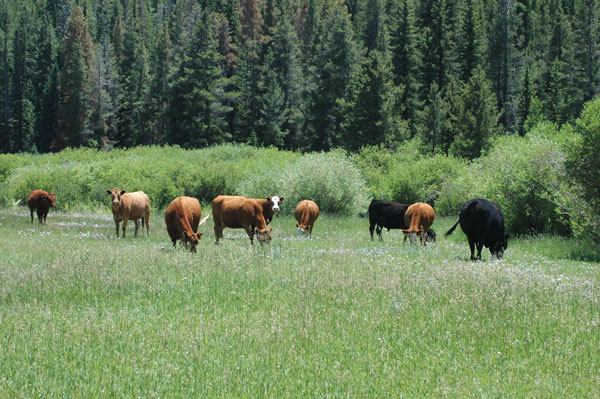February 28, 2019

By Colin Woodall
On February 7, dozens of reporters and TV camera operators dutifully lined up on the lawn of the U.S. Capitol to listen to a 29-year-old freshman U.S. House member discuss the introduction of a new non-binding resolution.
An announcement by such a junior House member rarely generates so much attention from DC’s cynical press corps. But the freshman was media darling U.S. Rep. Alexandria Ocasio-Cortez and the non-binding resolution was the much-hyped (so-called) “Green New Deal.”
Now, if you heard anything about the introduction of the Green New Deal, it probably had something to do with “farting cows.” Thankfully, that colorful term does not actually appear in the legislative language of the resolution.
Instead, it was included in a talking-points document that (briefly) appeared on Congresswoman Ocasio-Cortez’s website. The document’s authors lamented the fact that while they believed they could, in the next 10 years, retrofit every single building in America, build a national “smart” grid, and get rid of essentially all of America’s fossil-fuel burning cars, they “aren’t sure that we’ll be able to fully get rid of farting cows and airplanes that fast…”
The fact is Congresswoman Ocasio-Cortez apparently doesn’t know one end of a cow from the other. Getting rid of “farting cows” shows a level of ignorance that we haven’t seen in Congress until now. This misguided belief stems from the activist notion that doing away with cattle and beef production in the United States is going to have a major impact on the world’s climate.
This idea, of course, is patently ridiculous. Direct emissions from cattle in America account for approximately 2% of our nation’s greenhouse gas emissions in any given year. And of course, American cattle producers have already made tremendous progress in sustainability efforts: compared with 1977, the U.S. today produces the same amount of beef with 33 percent fewer cattle.
While we remain 100% committed to improving our sustainability and continuing to act as responsible stewards of our land and our planet, the cold, hard fact is that folks who are ringing the alarm bells about climate change are not being honest when they say getting rid of cattle production in the United States will have a significant impact on global temperatures.
The Green New Deal’s rollout exhibits an utter lack of specifics about how to reach the proposed emission goals. The portion of the Green New Deal resolution that deals with agriculture only says that the federal government should be “working collaboratively with farmers and ranchers in the United States to eliminate pollution and greenhouse gas emissions from the agricultural sector as much as is technologically feasible…”
But how do they propose—exactly—to achieve that? As always in Washington, the devil is in the details, and we noticed that the folks who tell us to “do more” on climate change are usually extremely scarce on details.
So we at NCBA decided to respond by releasing a few questions that we expect all citizens, journalists, and agricultural producers will ask of those who urge us all to do more from a policy standpoint about climate change.
You can read them all here, but in a nutshell they are:
What specific policy changes are you proposing?
How much would your proposed policy changes cost?
Who will pay these costs, and how?
How much would your proposed policy changes impact global temperatures down the road?
And, oh by the way, please show your math on all your calculations above.
After giving these questions some thought, it is easy to see that the Green New Deal, and other baseless political appeals for a meat-free vegan utopia, are just that—baseless.
Woodall is NCBA senior vice president, government affairs, in the Washington, D.C. office.
You May Also Like



